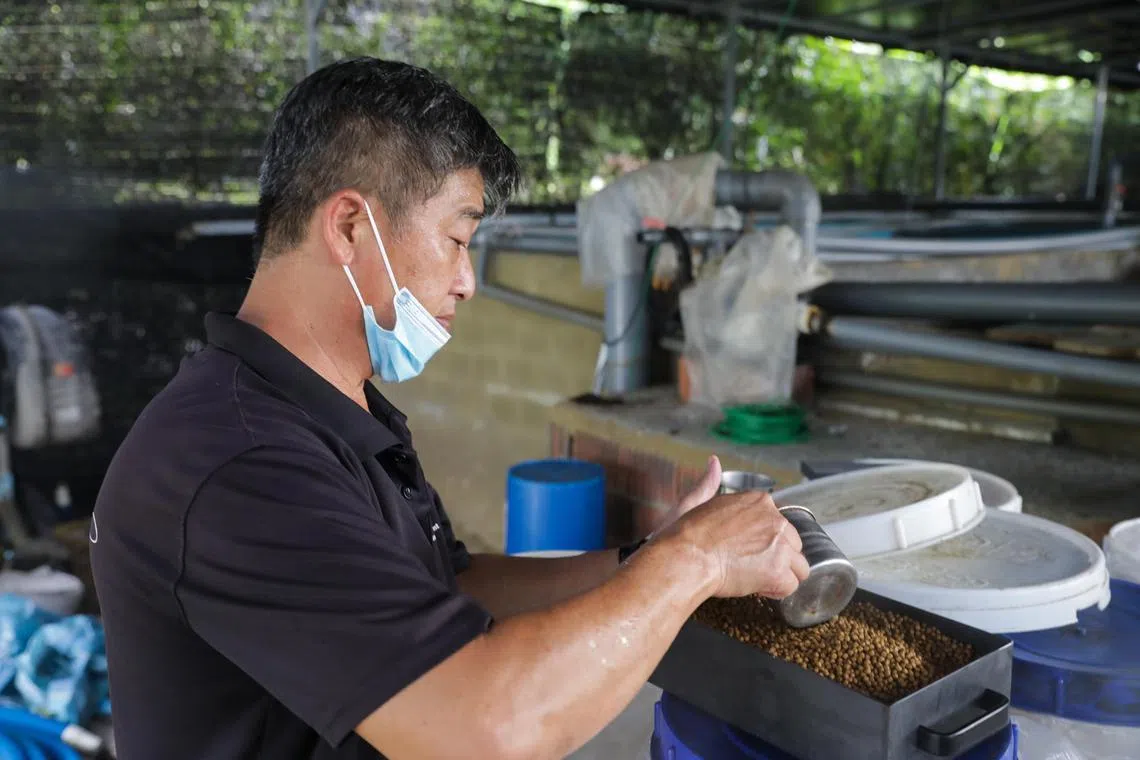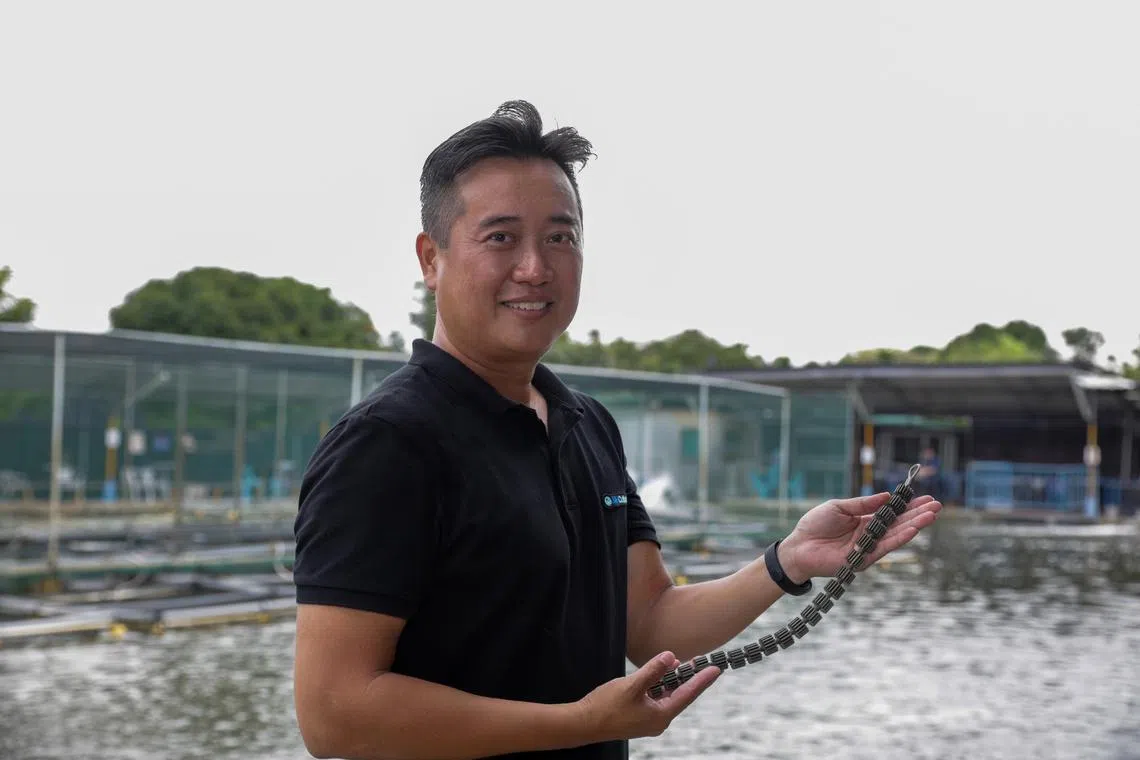Innovative ceramic alloy helps S’pore farm to improve yield and taste of its fish
Sign up now: Get ST's newsletters delivered to your inbox

Mr Lim Kim Chwee, Co-founder of Ebizu Fish Farm, storing fish feed in a box made from JAH Tech's ceramic material.
ST PHOTO: RYAN CHIONG
SINGAPORE - A local aquaculture farm has started deploying an innovative type of ceramic alloy to improve its yield without requiring more electricity to operate.
Ebizu, which grows local favourites such as grouper and threadfin, is using the material, which can emit electromagnetic waves, to improve the quality of water and fish feed, as well as heal injured fish.
The ceramic, called Unitatem Cultura, was invented by local agri-tech start-up JAH Cultura.
The electromagnetic waves allow the Unitatem Cultura ceramic alloy to slightly alter the properties of matter – solids, liquids and gases – in its vicinity while being harmless to humans.
When liquids, such as water, are exposed to the alloy, they decluster as their molecules gain energy, weakening the bonds between them.
The shrinking of molecule clusters increases the efficiency of nutrient exchange, waste removal and respiration, as molecules pass through the cell walls in fish more easily. By improving the bioavailability of the water, the alloy also improves the health of fish with irritated or infected skin, which often leads to death.
“We have been using the technology and there has been significant improvement to the health and survivability of our stocks,” said Ebizu founder Lim Kim Chwee. “In the past, the mortality rate for our farm would be roughly three to four fish every two weeks, but by treating the water, rates have decreased to around one every two weeks. Our fish have also become more resilient with a quicker recovery rate due to the treated water.”
The farm in Lim Chu Kang also improves the quality of food for fish by putting it in containers made from the alloy.
The electromagnetic waves allow amino acids to be released from complex compounds such as honey and soya sauce. By applying the same technology to fish feed, the goal is to aid the fish to better absorb and digest their food, achieving improved growth and health.
Ebizu claimed its fish tastes sweeter and juicier while having a firmer texture since incorporating Unitatem Cultura.
The collaboration between Ebizu and JAH Cultura started in September 2022.
“Farmers have always been operating on a thin margin. When adopting any technology, they need to consider the long-term impact,” said Mr Tan Chong Hui, chief executive and co-founder of JAH Tech, the parent company of JAH Cultura, in an interview with The Straits Times on Friday.
“In this case, having a technology that they can plug and play, which doesn’t require additional power cables or energy, will reduce overhead costs without compromising their operation.”
Mr Tan said his firm is currently working with a Chinese alcohol company, which he declined to name, to use the ceramic to improve the quality and taste of its drinks.
When ST sampled liquids such as soya sauce and brandy before and after they were exposed to Unitatem Cultura, there were noticeable changes in taste.

Mr Tan Chong Hui, JAH Tech CEO, with a ceramic chain that will improve the water quality to promote skin recovery amongst fishes with skin diseases.
ST PHOTO: RYAN CHIONG
The soya sauce tasted saltier and the brandy had less of an alcoholic burn.
Mr Tan said that this was because the alloy released compounds such as amino acids, which changes the taste of the products.
JAH Tech also plans to use its technology in other sectors, such as skincare, cosmetics and beverages.


